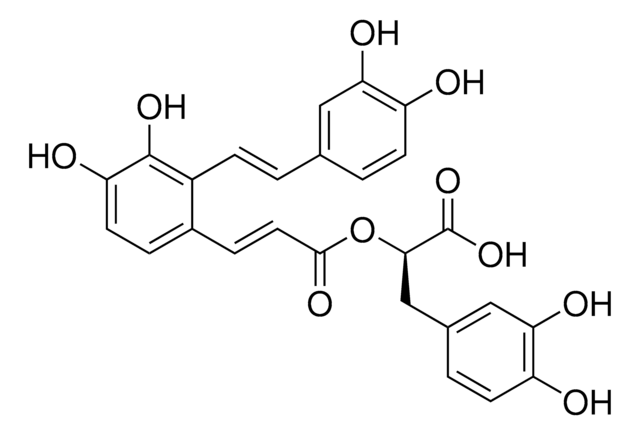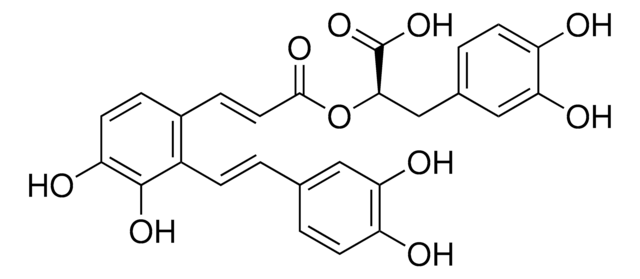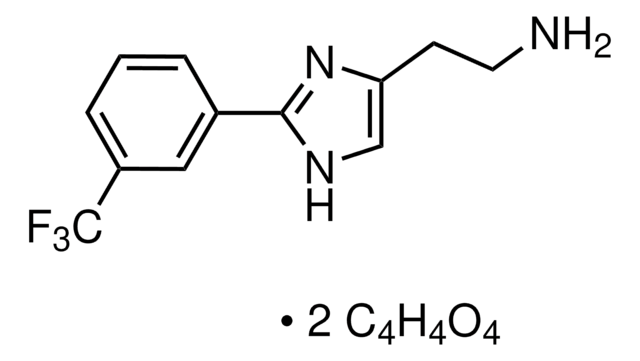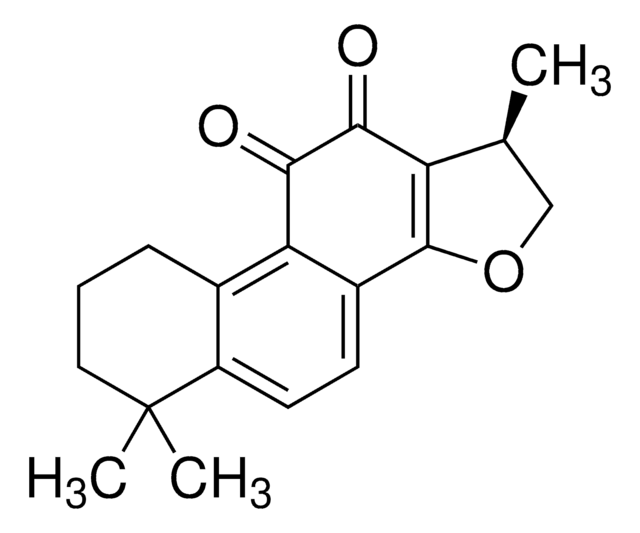97599
Salvianolic acid A
analytical standard
Sinónimos:
(αR)-α-[[(2E)-3-[2-[(1E)-2-(3,4-Dihydroxyphenyl)ethenyl]-3,4-dihydroxyphenyl]-1-oxo-2-propen-1-yl]oxy]-3,4-dihydroxybenzenepropanoic acid
About This Item
Productos recomendados
grade
analytical standard
Quality Level
assay
≥95.0% (HPLC)
shelf life
limited shelf life, expiry date on the label
technique(s)
HPLC: suitable
gas chromatography (GC): suitable
application(s)
food and beverages
format
neat
storage temp.
2-8°C
SMILES string
OC1=CC=C(C(/C=C/C2=CC(O)=C(C=C2)O)=C1O)/C=C/C(O[C@H](CC3=CC(O)=C(C=C3)O)C(O)=O)=O
InChI
1S/C26H22O10/c27-18-7-2-14(11-21(18)30)1-6-17-16(4-9-20(29)25(17)33)5-10-24(32)36-23(26(34)35)13-15-3-8-19(28)22(31)12-15/h1-12,23,27-31,33H,13H2,(H,34,35)/b6-1+,10-5+/t23-/m1/s1
InChI key
YMGFTDKNIWPMGF-UCPJVGPRSA-N
¿Está buscando productos similares? Visita Guía de comparación de productos
Categorías relacionadas
General description
Application
Packaging
Other Notes
Storage Class
11 - Combustible Solids
wgk_germany
WGK 3
flash_point_f
Not applicable
flash_point_c
Not applicable
Elija entre una de las versiones más recientes:
¿Ya tiene este producto?
Encuentre la documentación para los productos que ha comprado recientemente en la Biblioteca de documentos.
Los clientes también vieron
Nuestro equipo de científicos tiene experiencia en todas las áreas de investigación: Ciencias de la vida, Ciencia de los materiales, Síntesis química, Cromatografía, Analítica y muchas otras.
Póngase en contacto con el Servicio técnico










